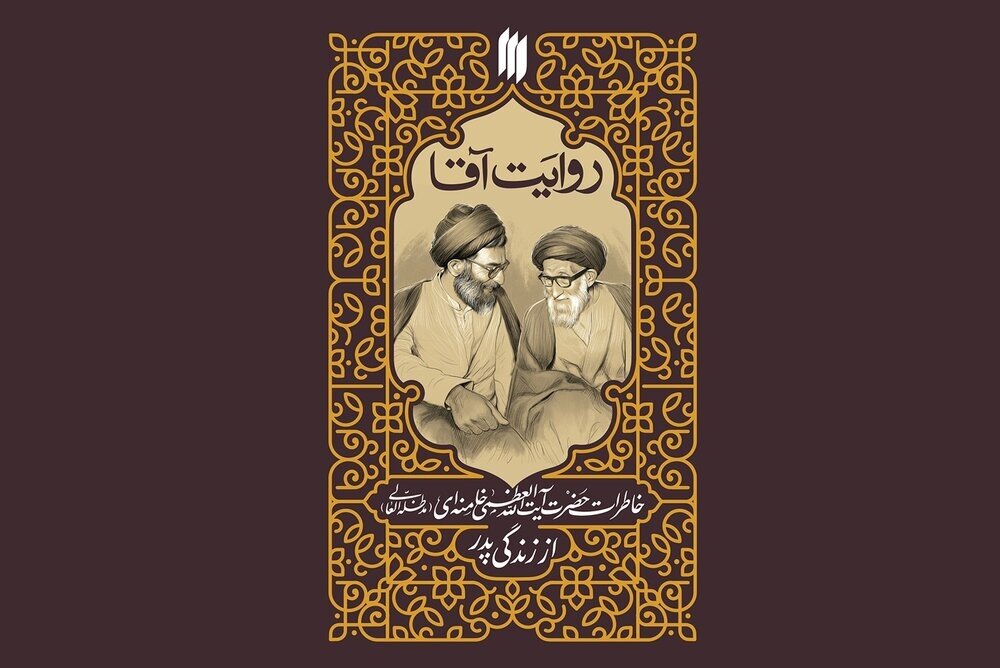The book entitled “Revayat-e aqa” (The Story of AQA) is published by Islamic Revolutionary Publications, which partners with the office for the preservation and publication of the works of Ayatollah Ali Khamenei.
The book details the life, personality, scientific and spiritual behavior of the leader’s father, Ayatollah Seyed Javad Khamenei, as his son and student said.
Edited from the speech and writings of Ayatollah Khamenei, the 312-page book approved by him, features previously unpublished documents, including photographs of the Iranian leader in 1940 When he was 1.5 years old.
The final text has also been reviewed and approved by Ayatollah Khamenei himself.

This book is not a traditional biographer, but a deep layered story. It is intended as a resource for researchers interested in the Khamenei family heritage.
Rather than a collection of traditional biographies or personal memories, this work is expected to provide invaluable insight into the enduring influence of leaders, and is intended as a resource for researchers interested in the Khamenei family legacy.
The intended audience for “Revayat-e Aqa” may include followers of Islamic Revolution, scholars, and students of religious and spiritual studies.
The main focus of “Revayat-e aqa” is as follows It presents a hierarchical and insightful portrayal of the person whose intellectual and moral influence played a fundamental role in shaping the character of Ayatollah Khamenei.
The book argues that analysis of leaders’ approaches and behaviors is incomplete without understanding father’s guidelines.
At the beginning of March 29th, a Bengali translation of the book entitled “Islamic Thought of the Qur’an in Islamic Thought” was released in Bangladesh, based on a speech by Ayatollah Seyed Ali Khamenei, the leader of the Islamic Revolution.
Prof. Mohammad Esa Shahidi, Persian, known for his Persian-Bengali translations to enhance the cultural connections between Tehran and Dhaka, translated the book.
The book provides a brief and structured overview of Islamic thought presented in the Qur’an, covering its basic principles, concepts and central themes.
Take a quick look at the biography of the leader’s father

Ayatollah Khamenei’s father was born in Hazard 16, 1274 sh/jumadi at-thani 20, 1313 lh and died in Thir 14, 1365 sh. He moved to Tabriz with his family and completed his Sath level studies before moving to Mashhad in 1336, where he studied Hajiaga Hussein Komi, Mirza Mohammad Agazadeh Khorasani (Kafai), Mirza Mahani, Haji Fazel Harasani, Haji Mohammad Agazadeh Korasani, Haji Mohammad Agazadeh Korasani, Haji Mohammad Agazadeh Korasani, Haji Mohammad Agazadeh Komi.
He studied philosophy under Aga Bozorg Hakim Mashhadi and Sheikh Asadra Yazdi. Then, in 1345 he went to Najaf where he learned from Mirza Mohammad Hussein Nanny, Said Abulhassan Isfahani, and Aga Zia ul-din Iraq who allowed him to practice Ijitihad.
He returned to Mashhad and remained there for the rest of his life, teaching and leading prayers at Mashhad Market (Azarbaijans Mosque) and at Siddikis mosques at Goharshad Mosque. Known for his deep interest in scholarships, he has engaged in discussions and research with fellow peers such as Hajj Mirza Hussein Abai, Hajj Said Ali Akbar Kui and Hajj Mirza Habib Maleki. He was indifferent to material possessions, and lived a respectful and ascetic life.
Even after the Islamic Revolution, he maintained his simple lifestyle despite his children’s high political positions. He was highly regarded for his character and was buried in the portico behind Imam Rida (AS) Zari. Imam Khomeini (RA) described Ayatollah Said Javad Khamenei as a dev and dedicated scholar in his message of sadness to Ayatollah Khamenei.
Reported by Tohid Mahmoudpour

